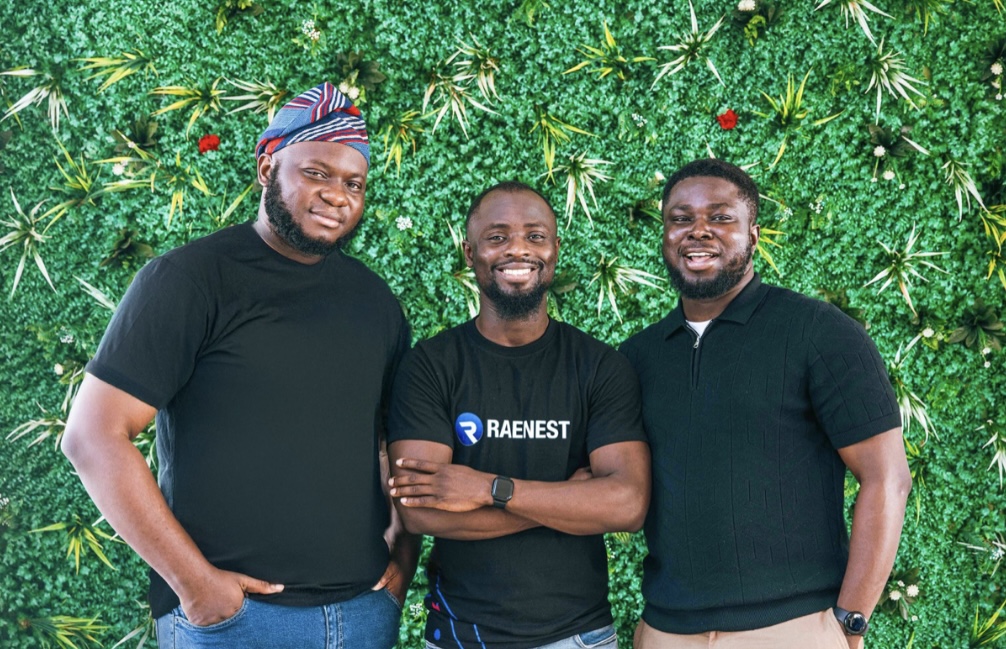As Africa’s tech ecosystem booms, extra native expertise is touchdown distant jobs with Huge Tech corporations and international startups. However getting paid stays a problem for a lot of of those freelancers and distant staff. They battle to open accounts that settle for US {dollars}, with international employers utilizing incompatible fee platforms, and face gradual invoicing and fee processes.
Enter Raenest, one of many many native fintechs that has stepped in to repair this. The corporate simply raised $11 million in Sequence A funding, led by QED Buyers, to develop its attain throughout Africa.
Via its retail product, Geegpay, launched in early 2022, Raenest affords freelancers digital USD, GBP, and EUR accounts. These accounts assist them obtain funds, handle multi-currency wallets, and convert currencies. Raenest additionally offers digital and bodily debit playing cards that settle for a number of currencies like U.S. {dollars}.
Final March, the Lagos-based Raenest expanded past freelancers with Raenest for Business, a platform that gives the identical monetary providers to African companies, permitting them to ship and obtain worldwide funds.
Progress past freelancers
Curiously, Raenest didn’t begin with freelancers in thoughts. Victor Alade, together with co-founders Sodruldeen Mustapha and Richard Oyome, launched the corporate in 2022 as an Employer of Report (EOR)— aiding international corporations to pay African staff compliantly.
Nonetheless, a few months in, the founders realized the actual drawback wasn’t with corporations sending funds, it was with people struggling to obtain them.
“A U.S. firm may not care if a fee is delayed by 5 days. However for somebody in Nigeria or Kenya, that’s a giant deal—particularly when changing to native forex turns into one other hurdle,” CEO Alade, a former software program engineer at Jumia and Andela, informed TechCrunch.
Additionally drawing from his distant work expertise, Alade and his co-founders, who additionally convey expertise working with African fintechs like LemFi and FairMoney, pivoted Raenest’s focus to addressing this ache level.
Geegpay shortly gained traction amongst freelancers, however enterprise signups started to rise as nicely. The crew realized that African corporations additionally wanted international accounts to streamline cross-border transactions. “Companies began asking if they might get mounted financial institution accounts to simplify funds,” Alade added. “That’s once we began considering: How massive is this chance? Who else is constructing for Africa?”
The addition of enterprise banking couldn’t have come at a greater time. Across the identical interval, U.S.-based fintech Mercury started restricting business accounts from a number of international locations, together with elements of Africa. This created a spot available in the market, giving native fintechs like Raenest a chance to serve enterprise prospects.
In the meantime, the EOR house was fairly aggressive with main gamers like Deel starting to look into the continent extra carefully.
These occasions made Raenest lean into what it noticed as a greater alternative: providing African companies a approach to obtain and ship worldwide funds.
Scaling to serve people and companies
That guess is paying off. Since launching in 2022, Raenest has processed over $1 billion in fee quantity — a 160% progress between 2023 and 2024 — serving freelancers and companies throughout the continent. Right now, greater than 700,000 people use the platform to obtain funds from international platforms like Upwork, Fiverr, and Gusto. In addition they use it for on-line procuring and subscriptions.
However, over 300 companies depend on Raenest to gather funds from worldwide prospects, increase capital from buyers, and make cross-border funds. Its shopper listing contains African startups like Moniepoint, Helium Well being, Fez Supply, and Matta.

Raenest competes with a number of fintech startups providing multicurrency accounts to prospects in Africa, together with Afriex, Cleva, Grey, Verto, and Leatherback. Alade argues that Raenest has an edge as a result of it targets people and companies, not like most gamers that cater completely to at least one buyer kind. Past its twin strategy, Raenest prioritizes velocity, safety, reliability, and compliance to retain customers, Alade stated.
Raenest’s ambitions lengthen past cross-border funds. “We wish to create a secure and seamless monetary ecosystem for Africans — serving to them earn, make investments, and develop their wealth, regardless of the place they’re on this planet,” Alade stated, hinting at upcoming product launches.
Growth plans
At present, the three-year-old fintech operates in Nigeria underneath a cash switch license. As a part of its subsequent progress section, the corporate will look to deepen its presence in Nigeria whereas securing licenses for growth into Egypt, Ghana, Kenya, and the U.S. This transfer will permit Raenest to serve Africans on the continent and within the diaspora.
With banking partnerships within the U.S. and U.Okay., Raenest can also be working to safe extra in these areas because it scales. Alongside the best way, the corporate goals to draw prime expertise to help its growth even because it brings Geegpay and Raenest for Enterprise underneath a single model, Raenest.
The most recent $11 million Sequence A spherical brings Raenest’s complete funding to $14.3 million.
Lead investor QED, one of many world’s prime fintech VC corporations, has been steadily growing its footprint in Africa since 2022. It has backed 5 startups offering monetary providers on the continent: Moniepoint, Remedial Health, Precium, Cedar Money, and now Raenest.
“We firmly imagine that by bridging the hole between native and international markets, Raenest will unlock new alternatives for African entrepreneurs, freelancers and companies, in the end driving better financial empowerment throughout the continent,” stated Gbenga Ajayi, associate and head of Africa and the Center East at QED Buyers.
Different buyers within the spherical embrace pan-African early-to-growth-stage VC corporations, comparable to Norrsken22, Ventures Platform, P1 Ventures, and Seedstars.

